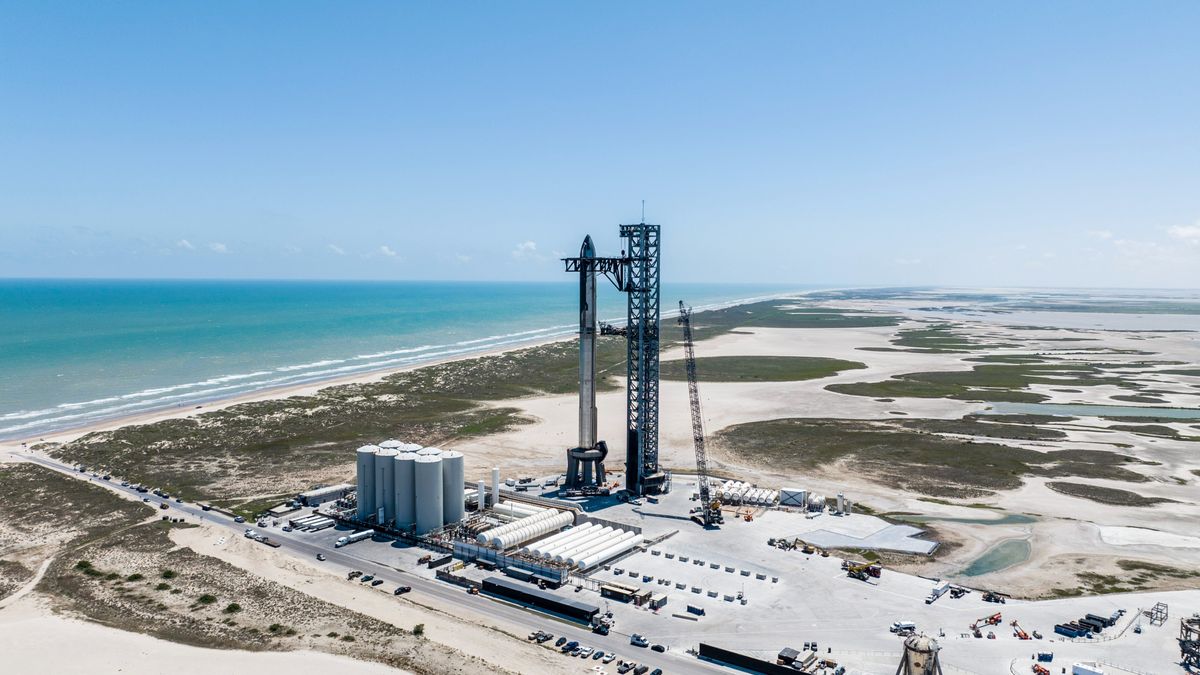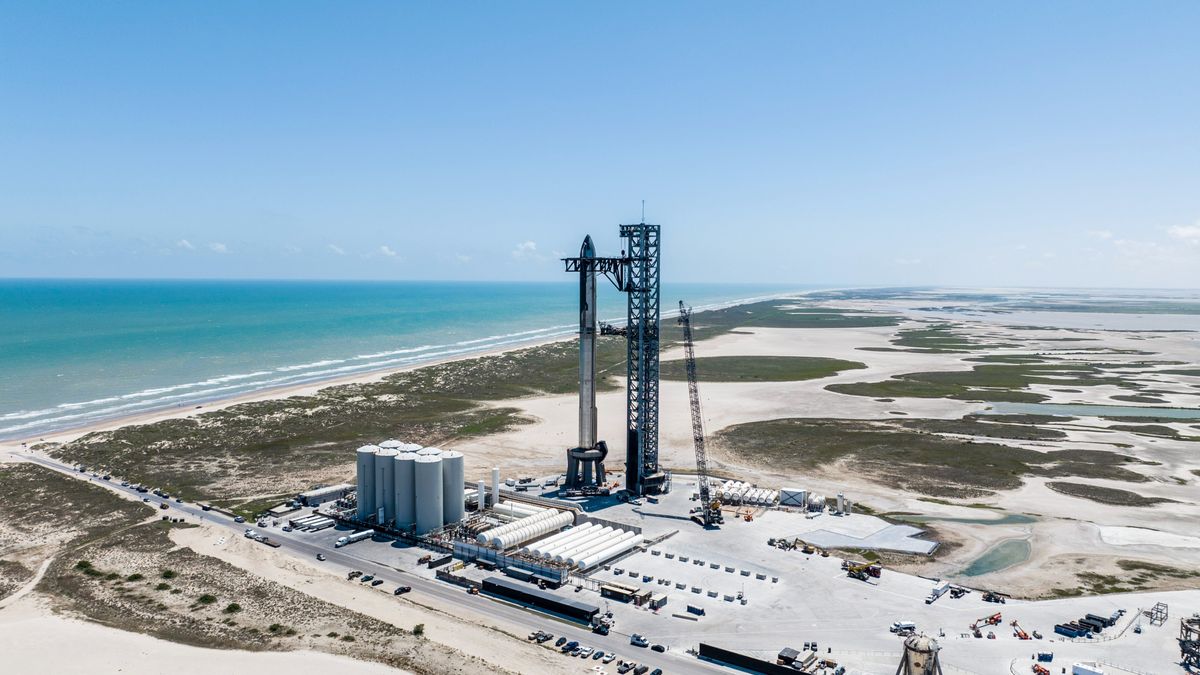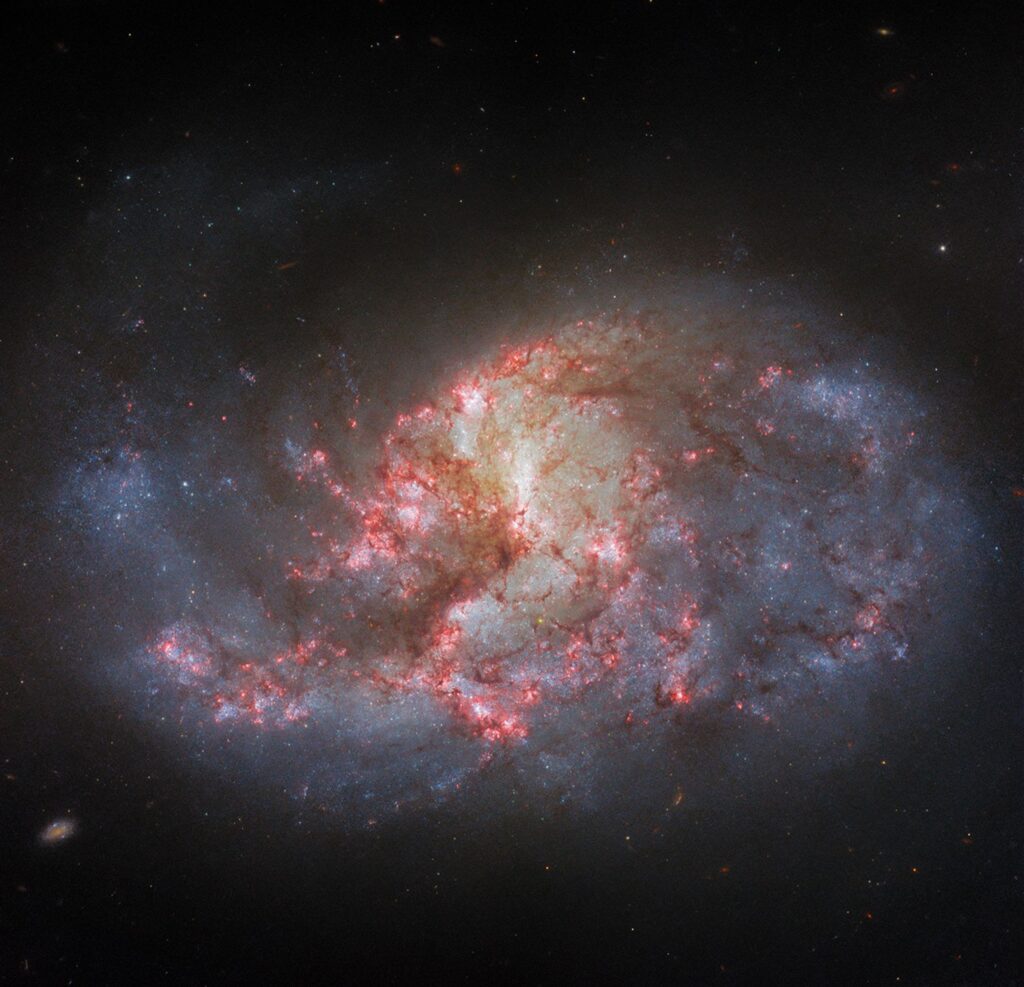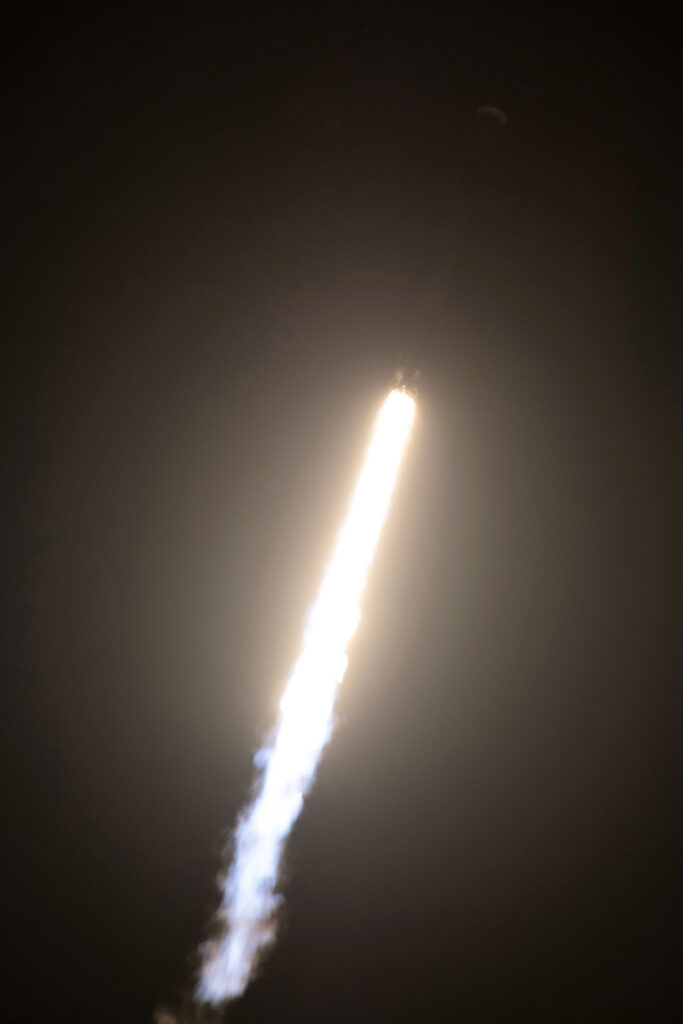
We’ll have to wait at least one more day to see Starship’s second-ever flight.
SpaceX had been targeting Friday morning (Nov. 17) for the second test launch of its huge Starship rocket. But that’s no longer the plan.
“We need to replace a grid fin actuator, so launch is postponed to Saturday,” company founder and CEO Elon Musk announced today (Nov. 16) via X (formerly known as Twitter). (Grid fins are the waffle-iron-like structures on Starship’s Super Heavy first stage, which help the booster steer its way back to Earth.)
Liftoff from SpaceX’s Starbase site in South Texas is now scheduled to occur during a 20-minute window that opens Saturday at 8 a.m. EST (1300 GMT; 7 a.m. local Texas time), according to a company mission description. You can watch it live here at Space.com when the time comes.
Related: How to watch SpaceX’s 2nd Starship launch on Nov. 18
Read more: How SpaceX’s 2nd Starship rocket test launch will work
Starship is SpaceX’s next-generation deep-space transportation system, which the company is developing to take people and cargo to the moon, Mars and beyond.
The vehicle consists of two elements, both of which are designed to be fully and rapidly reusable: The giant Super Heavy first stage and a 165-foot-tall (50 meters) upper-stage spacecraft known as Starship.
Together, the duo make the biggest and most powerful space vehicle ever built. When fully stacked, Starship stands nearly 400 feet (122 meters) tall.
A fully stacked Starship has flown just once to date, on an April 20 test flight from Starbase that aimed to send the upper stage partway around Earth. Splashdown was targeted for the Pacific Ocean near Hawaii, but the upper stage never got to fly freely; it failed to separate from Super Heavy, and SpaceX detonated the vehicle high above the Gulf of Mexico four minutes after liftoff.
Related: Incredible photos of SpaceX’s 1st Starship launch
RELATED STORIES:
The goals of Saturday’s flight are broadly the same as those of the April 20 mission. If all goes according to plan, Super Heavy will come down for a water landing in the Gulf of Mexico about seven minutes after liftoff.
The Starship upper stage, meanwhile, will get close to orbital velocity as it makes a partial circuit of our planet. It will splash down near Hawaii about 90 minutes after launch.



